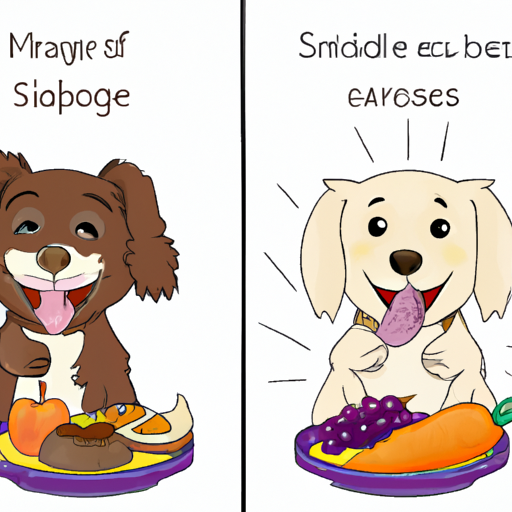As a caregiver for your furry friend, it’s essential to know what foods are safe for dogs to consume and which ones can be harmful. This guide will walk you through the key aspects of a dog’s diet, so you can ensure your pet has a healthy and balanced diet.
What Can Dogs Safely Eat?
Dogs are omnivores, meaning they can eat both meat and plants. Here are some dog-friendly foods:
- Lean Meat: This includes chicken, turkey, and beef. Make sure the meat is cooked and free from bones and excessive fat.
- Fish: Salmon and tuna are excellent sources of protein and omega-3 fatty acids.
- Vegetables: Carrots, green beans, and peas can be a great addition to your dog’s diet.
- Fruits: Apples (without seeds), bananas, and watermelon are safe for dogs.
Foods Dogs Should Avoid
There are also certain foods that dogs should never consume as they can be toxic or harmful. These include:
- Chocolate: It contains theobromine, which can lead to poisoning.
- Grapes and Raisins: These can cause kidney failure in dogs.
- Onions and Garlic: They can cause damage to the red blood cells.
- Avocado: It contains persin, which can lead to diarrhea and vomiting.
Understanding Dog Nutritional Needs
Dogs require a balanced diet to stay healthy. This typically includes:
| Nutrient | Function |
|---|---|
| Protein | For growth and maintenance |
| Fats | For energy and coat health |
| Carbohydrates | For energy |
| Vitamins and Minerals | For different body functions |
Special Dietary Considerations
Just like humans, some dogs may have specific dietary needs due to health conditions like allergies, diabetes, or kidney disease. Always consult with your vet before making significant changes to your dog’s diet.
Making Homemade Dog Food
If you’re considering making homemade dog food, it’s crucial to ensure it’s nutritionally balanced. You’ll need to include a mix of proteins, carbs, and veggies. Always consult with a vet or a pet nutritionist.
The Importance of Hydration
Water is just as important to dogs as it is to humans. Make sure your dog always has access to fresh, clean water.
How to Transition Your Dog to a New Diet
When changing your dog’s diet, do it gradually over a week or so. Start by replacing a small portion of their current food with the new food, gradually increasing the amount of new food each day.
FAQs
Q: Can dogs eat dairy products?
A: Some dogs can tolerate dairy, while others may get upset stomachs. Start with small amounts to see how your dog reacts.
Q: What about bones?
A: Some bones can be dangerous for dogs as they can splinter and cause choking or internal damage. Always supervise your dog while they’re chewing on bones.
Q: Can dogs eat eggs?
A: Yes, dogs can eat cooked eggs, which are a great source of protein.
Q: How often should I feed my dog?
A: Most dogs should be fed twice a day, but the best schedule depends on their age, health, and size. Consult with your vet.
Remember, every dog is unique and may have different dietary needs. Always consult with your vet for the best advice on what to feed your dog.



